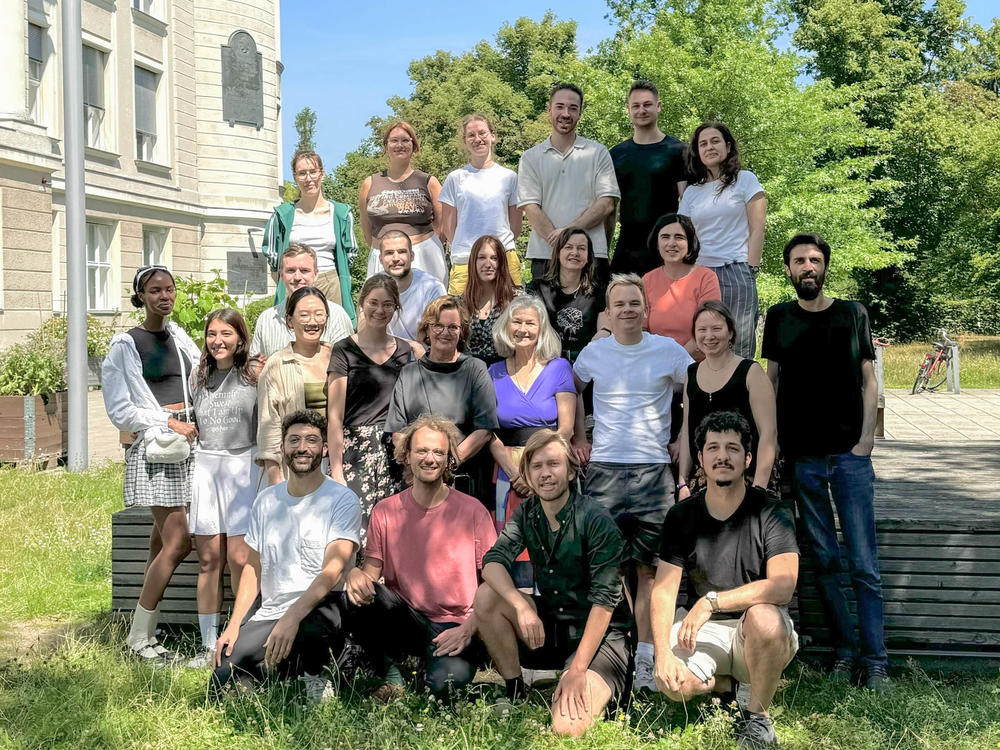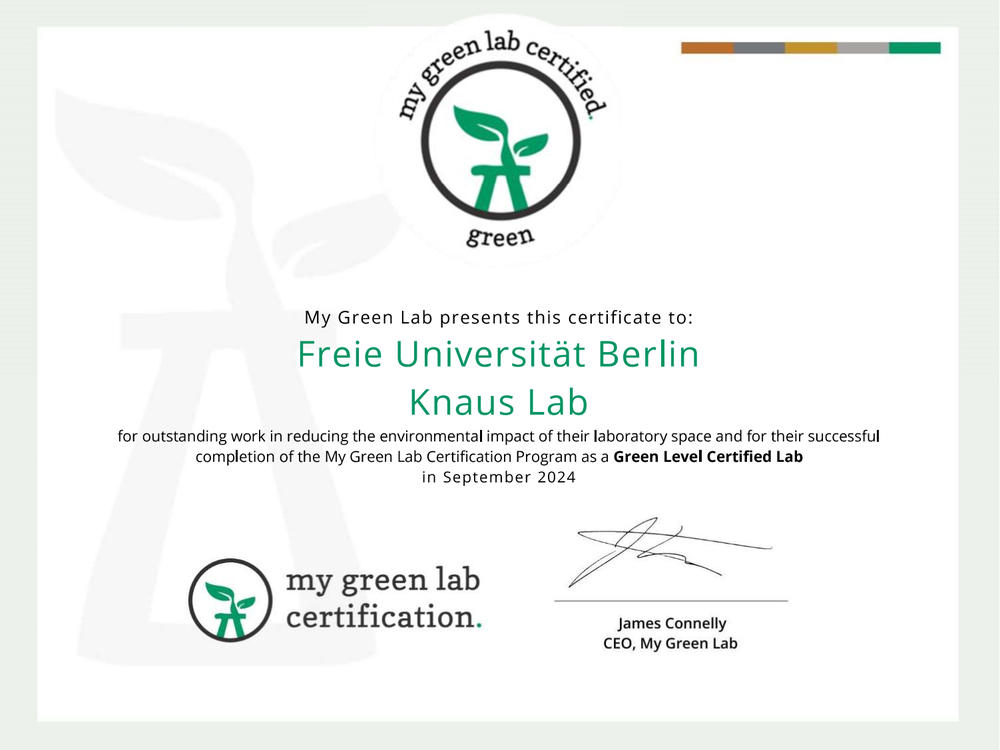Knaus Group
Institute of Chemistry and Biochemistry
Signal Transduction
Building Hahn-Meitner Bau
Room 228
14195 Berlin
Research Interest
The interest of the Knaus lab is to understand the molecular mechanism of BMP signal transduction, and to identify common and distinct mechanistic concepts in different cellular and tissue environments. Bone or Body Morphogenetic Proteins (BMPs) belong to the TGFbeta superfamily of secreted growth factors, which regulate organ development, repair and homeostasis by binding and activating transmembrane serine/threonine kinase receptors (BMPRs). Functional BMP receptor complexes are composed of two types of receptor, BMPRI and BMPRII. Their mode of oligomerization and lateral mobility within the plasma membrane, as well as their association with regulatory proteins, determine signaling specificity. The Smad-dependent signaling pathway is initiated by BMPRI upon transphosphorylation by activated BMPRII and leads to transcriptional responses. There are a variety of known non-Smad signaling pathways initiated by BMPs, which include both transcriptional and non-transcriptional responses. Their molecular mechanisms are far less well understood.
Our aim is to implement the following criteria into the general understanding of BMP signal transduction, not only in stem and precursor cells, but also fully differentiated cells: biomechanical stimulation, extracellular modulators, subcellular compartmentalization of signaling pathways and crosstalk to the Hippo and insulin signaling cascades.
Current studies in the lab focus on the following topics:
- Structure and function of TGF-beta family receptor complexes
- Subcellular compartmentalization of BMP signal transduction
- Rare diseases caused by mutations within the BMP pathway – our research on PAH and FOP
- Role of BMPs and their antagonists in controlling osteogenesis, myogenesis and adipogenesis
- BMP signaling in a biomechanical context
- Role of BMPs in tumor angiogenesis
- Disease-associated mutations in TGF-β receptors alter the functionality of associated regulators
- Migration - Analysis and modelling of microscopy images (large data sets)
- Molecular mechanism of BMP induced non-Smad signaling
- Role of the cytoskeleton in BMP signaling
- Crosstalk of BMP and Hippo signaling
- Role of BMPs in glucose metabolism
Sustainability Efforts
Between 2023 and 2024 the Knaus lab undertook measures for increasing sustainability by reducing energy and resource consumption in laboratory work.
The Knaus lab is the first research group at the Freie Universität Berlin to become certified with the most sustainable label as a Green Level Certified Lab by My Green Lab.



